- The strategic location of the politically Danish island, in addition to being a gateway to the Arctic, is extremely important for US security.
- Greenland’s natural resources have been the target of interest from foreign companies and global powers.
- Due to its importance, any change in foreign control or influence over Greenland can have implications for Denmark and for NATO.
Greenland, the largest island in the world, is located between the Atlantic Ocean and the Arctic. Although it belongs politically to Denmark, it has great autonomy and, in recent years, has attracted the attention of several world powers due to its growing geopolitical importance.
Greenland plays an important role in international relations due to its position as the gateway to the Arctic, which is seen as a new battleground for trade and diplomacy between the great powers. In addition, it is rich in natural resources both above and below ground and on its coast.
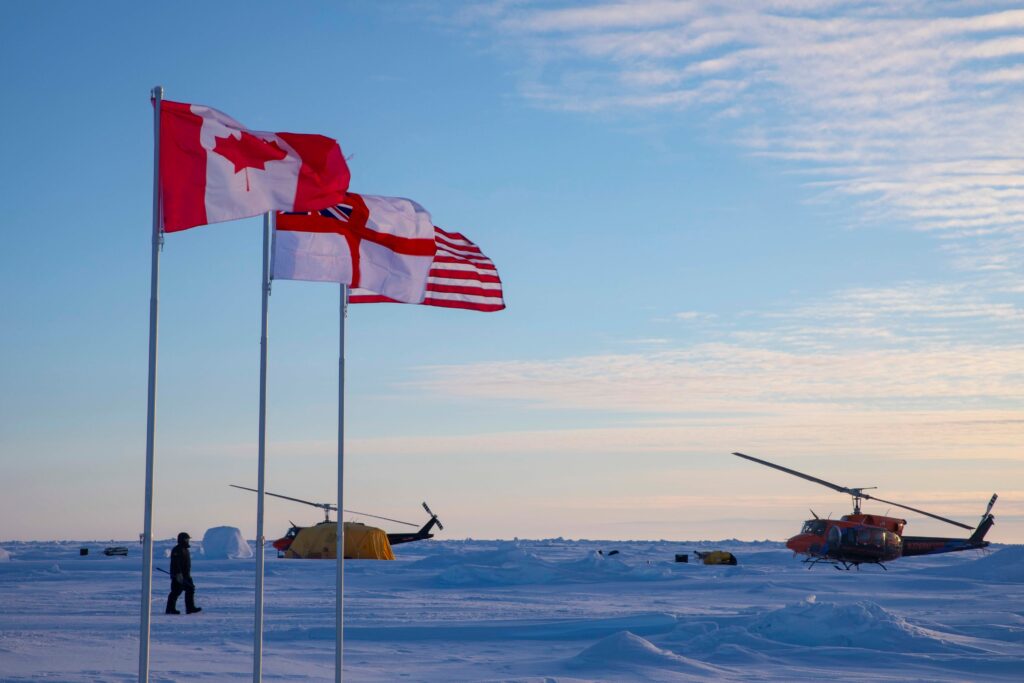
Greenland – the Danish territory with an American military presence
NORAD (North American Aerospace Defense Command) is a binational military command of the United States and Canada responsible for air and space defense in North America.
The organization was created in 1958 as a result of the Cold War and the need to protect the airspace and territory of the United States and Canada against possible Soviet air and missile attacks. For this reason, the command has established a significant presence in Greenland, with several facilities and air bases on the island.
One of NORAD’s main facilities in Greenland is Thule Air Base, located on the west coast of the island. The base is a major hub for intelligence and surveillance operations, allowing for the monitoring of military activities by Russia and other Arctic countries.
In addition to Thule Air Base, NORAD has other facilities in Greenland, including radar bases and communication stations. These facilities play a crucial role in detecting and monitoring air and space threats that could pose dangers to the security of North America.
NORAD’s presence in Greenland is not without controversy. Thule Air Base has been the subject of protests from environmental groups, particularly in relation to its environmental impact and a nuclear accident in 1968.
However, the command continues to maintain a significant presence on the island due to its strategic importance for the defense of the region and for cooperation between the United States and Denmark.
In short, NORAD’s role in Greenland is critical to North America’s air and space defense. Its facilities and air bases on the island play a crucial role in detecting and monitoring air and space threats, and enabling air defense.
Ores and Geography – Greenland’s Treasure and Potential Curse
Greenland is rich in natural resources, including minerals, oil and natural gas. Exploitation of these resources has been of interest to foreign companies and the Danish government, who see the exploitation of these resources as an opportunity to boost the island’s economy.
However, mining for ores can have a significant impact on Greenland’s environment, especially given increased industrial activity and the need to build infrastructure to extract and transport the resources.
This can lead to negative impacts on local flora and fauna, as well as communities that depend on these natural resources.
Despite these challenges, mining in Greenland can also represent an opportunity for sustainable development on the island.
Responsible exploitation of these resources can help boost the local economy and generate jobs for local communities. In addition, the global demand for ores has increased with investment in renewable energy, which makes Greenland a potential supplier of minerals to the world and a key part of a more sustainable future.
Great Powers’ Growing Interest in Greenland
In addition to minerals, the United States, the European Union, China and Russia have a number of geopolitical interests in Greenland, which can be summarized as follows:
- United States: The US military presence at Thule Air Force Base, located in Greenland, is seen as strategic to US national security. The base’s location allows it to monitor potential Arctic threats, as well as being a starting point for military operations in other regions of the world. In addition, the US has shown interest in exploiting natural resources in Greenland, especially with regard to ores.
- European Union: The EU is interested in developing closer relations with Greenland and Denmark, especially in terms of cooperation in the area of environment, security and natural resources. The EU is also concerned about the impact of climate change on the Arctic and has sought to adopt policies and investments that can ensure the sustainability of the region.
- China: China has shown increasing interest in Greenland, especially in the exploitation of natural resources. Furthermore, the Chinese presence in the region can be seen as a way to expand its geopolitical influence in a region close to the United States and Canada. This presence, either through mining investments in Greenland or through exploration in its nearby waters, can be seen as activities with a dual civil-military purpose which would affect the status quo in Arctic security.
- Russia: Russia has extended its territorial claims in the Arctic region, including areas close to Greenland. In addition, Russia has invested in infrastructure and technology in the region, seeking to expand its presence and guarantee its sovereignty in the area. The Russian military presence in the Arctic region has also raised security concerns in the region.
In general, Greenland has become a point of interest for several global powers due to its strategic location, its natural resources and its position in the Arctic region. Growing interest in the island has generated geopolitical competition in the area, with significant implications for the security and development of the region.
Why Greenland is geopolitically important in a post-Cold War world
Greenland is geopolitically important today for several reasons. One of the main factors is its strategic location, which makes it an access point for Arctic sea routes. With global warming and melting sea ice, Greenland could become an important transport route between Asia and Europe, which has aroused the interest of several world powers.
Furthermore, Greenland also has valuable natural resources such as rare minerals and oil that can be exploited economically. This has generated competition between countries interested in accessing and controlling these resources, such as China and the United States.
The presence of foreign military bases on the island also contributes to its geopolitical importance, especially in the context of possible conflicts between great powers.
Finally, Greenland is a strategic region for Danish national security, as it is an autonomous Danish territory. Any change in foreign control or influence over Greenland could have implications for Denmark and NATO.
With global warming leading to the opening of new maritime routes in the Arctic region and the greater search for minerals to help in the development of renewable energy forms, Greenland’s geopolitical importance for the great world powers only tends to increase. The risk of armed conflict in this region is still low, but it tends to increase in proportion to the importance of the Arctic in the global chess game.
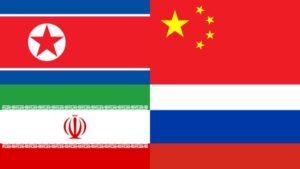
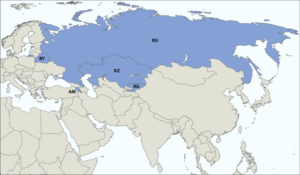




日軍第731部隊旧址_PB121201-e1713902593308-300x224.jpg)


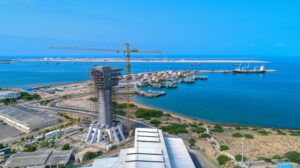




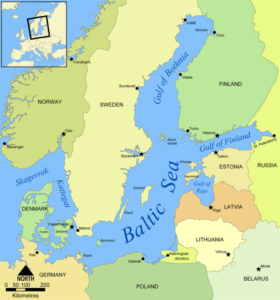

[…] the Arctic, where ice is melting and natural boundaries are shifting, a story of competition and interests is […]